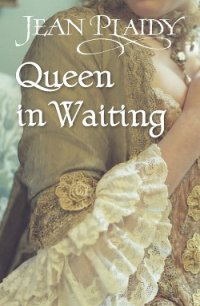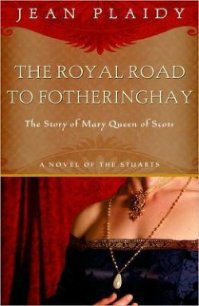Queen of This Realm - Plaidy Jean (читать бесплатно книги без сокращений .txt) 📗
Burghley did a strange thing then, which afterward people said was prophetic.
He took up a prayer book and turned the leaves. Then he placed the book in Essex's hands, indicating the words: “Men of blood shall not live out half their days.”
We had other matters nearer home. Burghley stressed the fact that Ireland was giving trouble again, and it was really necessary to appoint a strong Lord Deputy and that we should give full consideration to this without delay.
We were at Greenwich and I called a meeting there.
Burghley was not well enough to attend but his son Robert Cecil was present. There was also Howard of Effingham who, much to Essex's chagrin, had now become the Earl of Nottingham, Essex himself and the Clerk of the Council.
I began by saying that I believed the best man to send to Ireland was Sir William Knollys, who had proved himself to be reliable, shrewd and honest.
Cecil said that he was in complete agreement and he believed that Sir William should be sent without delay.
It was then that Essex raised the objection. Knollys was not the man, he said. It was obvious to him that we should send Sir George Carew.
There was silence in the chamber. Robert Cecil looked taken aback, but I realized the motive behind Essex's outburst. I found that now I was always looking for motives behind his actions. Sir William Knollys was his uncle and he could rely on his support at Court, so naturally he did not want to lose him. It could be said that Knollys was of the Essex faction, whereas George Carew supported the Cecils. To lose Carew would be a blow to them; to lose Knollys would be equally inconvenient for Essex.
I had already agreed with Robert Cecil and the Admiral that Knollys was our best man, and Essex had had the temerity to ignore my views and express his own.
I said firmly: “Knollys should be informed at once that he should prepare to leave for Ireland.”
“It is a mistake!” cried Essex. He was behaving like a petulant boy who has been denied a coveted plaything.
I was really angry with him. His follies were becoming intolerable. I thought of his philandering with the ladies of the Court and his reckless involvement with the King of Scotland. It was time he realized that he was not so sure of my favor that he could behave in such a manner. Robert, in spite of all that had been between us, had never been discourteous to me or raised his voice against me in public.
I saw his blazing eyes and the angry color in his face before he very deliberately turned his back on me.
There was a hushed silence in the chamber. I could not believe he had gone so far. This was something I would not endure. I strode toward him and boxed his ears.
“And now,” I shouted, “go and be hanged.”
That was not the end. He faced me, his fury evident. Then he put his hand on the hilt of his sword as though ready to draw it against me.
“I would not have taken such a blow from King Henry, your father,” he cried. “It is an indignity which I never could—nor would—endure from anyone… No! Certainly not from a king in petticoats.”
I was so taken aback that for a few seconds I did nothing, and just as I was about to call the guards, he dashed from the room.
NEVER HAD SUCH conduct been known. It was being discussed throughout the Court. This is the end of Essex, it was said.
Of course he should be in the Tower. He should suffer the traitor's death. But I was so shaken that I was uncertain how to act.
He is a foolish boy, I said to myself again and again.
He is a dangerous young man, said that wise part of me. Remember the letters to Scotland. What is the use of caring for him? He brings misery to all those who come into contact with him. Poor Frances Walsingham! I pity her. I can even be sorry for his mother.
I knew that his friends were trying to persuade him to attempt a reconciliation. If he had begged forgiveness, I supposed I should have granted it. I had to admit I missed him at Court. But the weeks passed and he remained in sullen retreat.
Then I ceased to think of him, for Robert Cecil came to tell me that his father was very weak indeed.
I went to his house in the Strand and I was shocked to see how ill the poor man was. He lay back in his bed, his eyes apologizing because of his inability to rise. I took his poor swollen hands in mine and kissed them.
I said: “My dear, dear friend, I did not know how ill you were until the Elf told me. Had I known I should have been here ere this.”
“Your Majesty is so gracious to come to me.”
“I shall come… and keep coming… until you are well again.”
He shook his head and said: “I shall rise no more from this bed.”
“I forbid you to say such things. You must get well. You have been beside me so many years. What should I do without you?”
He was overcome with emotion and so was I.
I rose from his bed and asked what food they were giving him. He could only take liquid food, I was told, and only a little of that. His hands were so swollen that he could scarcely lift a spoon to his lips.
I ordered them to make him a gruel which I knew was especially nourishing, and when it was ready I took it to him and fed my minister as though he were a child.
He said that his greatest grief in leaving this world was that he would no longer be able to serve me.
“No queen ever had a more faithful servant,” I assured him. “I have scolded you sometimes, dear Spirit. I have raged against you, have I not? But I never ceased to love you. Nor have I ever been in doubt of your worth.”
I sat in silence by his bed, staring into space. There could be no disguising the fact that he was near his end.
He said: “Robert will serve you well. I have brought him up with this object. He has a sharp and clever mind.”
I nodded. Poor Burghley, he was such a good man and God had ill rewarded him in this life. He had loved his family and looked after them all; and in his care for my well-being he had brought forward his second son, Robert, knowing full well that his first-born, Thomas, who was something of a weakling, lacked the ability to follow in his father's footsteps. I knew I had another treasure in the Elf; but he was not his father. I should never know his like again.
I thought of how I should miss him, for, excellent minister that he was, he was also friend and confidant. We had shared so much—even ailments. He had suffered from his teeth and so had I. Many a pleasant half hour we had spent chatting about our pains. And when he—devoted family man that he was—had lost his daughter some years before, and his wife a year later, it was I who had tried to comfort him.
Life was cruel. His mother had died only a year before his daughter, so that there were three deaths in a row and all were people who were very near and dear to him. He had had trouble enough through his daughter's marriage with Oxford, and I knew full well how often he had wished that marriage had never taken place. But he had great comfort in his grandchildren. Such a good man, I mourned, and such sorrow!
The end was inevitable. I was going to lose another friend, perhaps the most able of them all. I felt lonely and bereft. They were all slipping away from me.
I visited him as frequently as I could while he lingered on, and if a day came when I could not go, I sent one of my ladies to inquire after him, and take affectionate messages and cordials from me.
I felt very very sad and could think of little else but Burghley during those days of waiting for the end.
Why did he have to die? Of course he was in his seventy-sixth year, and that was a goodly age. I remembered all he had done for his country and I doubted England had ever had a more faithful servant. It was so rare to find a man who was excellent in statesmanship and able to enjoy a felicitous family life at the same time. There was not a better husband and father in the land; his grandchildren loved him and his constant thought was for the welfare of his family. Thomas Cecil, the eldest son, must have been a bit of a trial to him because he was wild in his youth, and lacked that fine, keen brain which the younger son, Robert, had inherited. But Burghley with that great good sense, which went side by side with his tenderness toward his family, did not hesitate to bring along Robert, the slightly deformed little Elf whom he was now bequeathing to me. I should honor Robert—not only for his father's sake but for his own. It was typical of Burghley that he should have left me well provided for. We had such a lot in common; his love of music was another of these interests. I was going to be so desolate. I had named him aptly as my Spirit, and I should miss him sorely.




